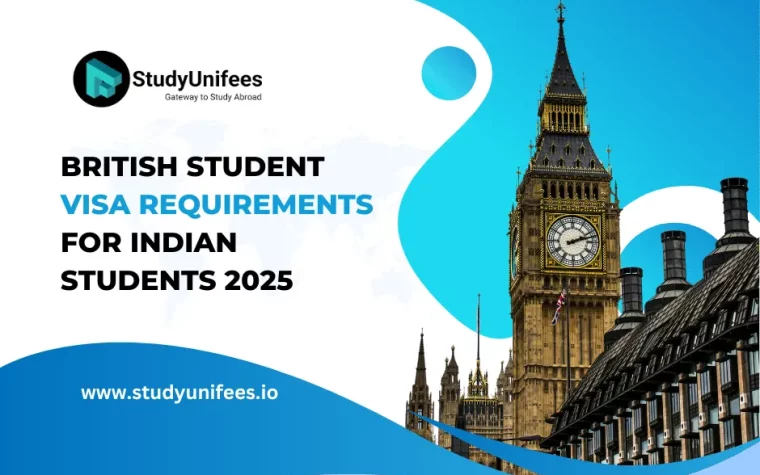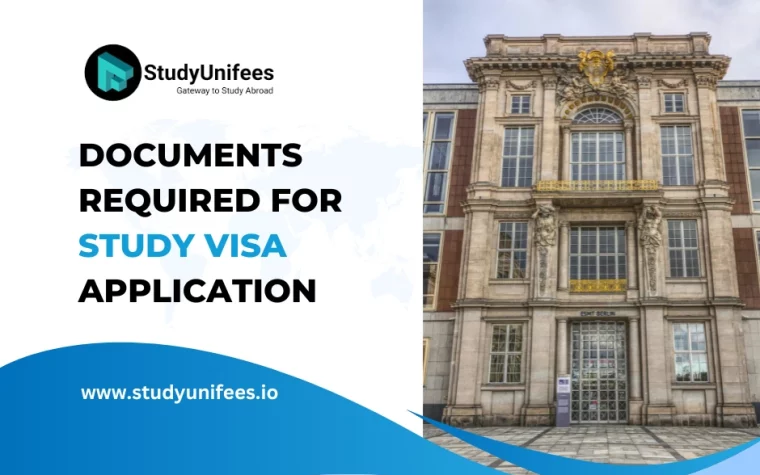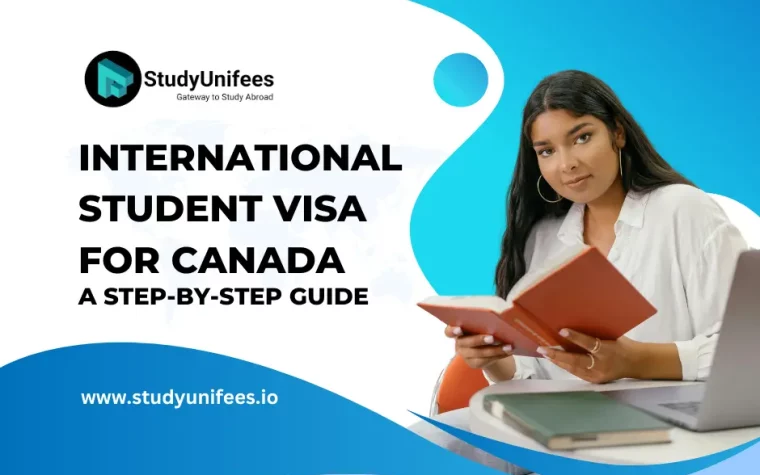How to Get a Scholarship for Studying MBBS Abroad: A Complete Guide for Indian Students
Pursuing a medical degree can be both a life-changing and financially demanding endeavor. For a growing number of Indian students, the path to becoming a doctor involves looking beyond domestic colleges and venturing into MBBS abroad programs. Whether you’re drawn by world-class medical training, international exposure, or simply the desire to study in a different cultural environment, the possibility of earning your degree overseas has become increasingly attractive. However, the cost of tuition and living expenses can be a major hurdle, making low-cost MBBS abroad without donation a key consideration. Fortunately, a range of scholarships exists to make affordable MBBS programs abroad a reality.
In this comprehensive guide, we will explore the various types of scholarships, including abroad scholarship for Indian students, study abroad scholarships for Indian students, and government scholarships for studying abroad. You’ll discover their eligibility criteria, how to apply, and tips to enhance your chances of securing the financial support you need. By the end of this article, you’ll have a clear roadmap for turning your dream of studying medicine overseas into a feasible plan.
Introduction to MBBS Scholarships Abroad
For many Indian students, the allure of MBBS abroad revolves around access to cutting-edge research, advanced medical technology, and a global perspective on healthcare practices. However, the cost factor often looms large, particularly for those aiming to secure a seat in reputable institutions. Here’s where scholarships become indispensable. From abroad scholarship for Indian students offered by universities to government scholarships for studying abroad sponsored by foreign governments, these opportunities can cover part or even the entirety of your educational expenses.
Indeed, scholarships help transform a daunting financial challenge into a manageable prospect. As the number of affordable MBBS programs abroad grows, so does the availability of merit-based, need-based, and specialized scholarships. Moreover, these funding options make low-cost MBBS abroad without donation a tangible goal for academically strong but financially constrained students.
But where do you begin? Which scholarships are relevant for medical studies specifically? This guide aims to answer these questions in detail and introduce you to study abroad scholarships for Indian students that specifically cater to the field of medicine. By being thorough in your research and strategic in your applications, you can significantly lighten your financial burden and focus on what truly matters: excelling in your medical education.
Why Scholarships Are Crucial for Aspiring Medical Students
- Alleviating Financial Strain
Medical education overseas can be expensive, covering not just tuition fees but also living expenses, insurance, books, and travel. Securing an abroad scholarship for Indian students or other forms of funding is often the only viable route for families who cannot afford hefty fees. Scholarships thus become the key that unlocks the door to low-cost MBBS abroad without donation. - Incentivizing Academic Excellence
Most scholarship committees reward students who demonstrate strong academic track records, leadership qualities, and extracurricular achievements. This creates a virtuous cycle where students push themselves harder academically to qualify for study abroad scholarships for Indian students. - Global Exposure and Networking
Winning a scholarship to study MBBS abroad often grants you access to a worldwide network of medical professionals, professors, and fellow scholars. This cross-cultural environment provides mentorship, collaboration opportunities, and professional development that may be harder to find in domestic settings. - Driving Social Mobility
Scholarships promote equal opportunities by empowering students from economically weaker backgrounds. This helps cultivate a diverse and inclusive community of healthcare professionals who bring different perspectives to the field. - Encouraging Research and Innovation
Many government scholarships for studying abroad place strong emphasis on research, encouraging recipients to contribute to advancements in medical science and technology. These programs often provide grants for attending conferences, laboratories, and specialized workshops.
By reducing the financial roadblocks and emphasizing meritocracy, scholarships make affordable MBBS programs abroad accessible. As you plan your journey, it’s crucial to explore all avenues of funding, since the right scholarship can redefine your entire educational experience.

Types of Scholarships for MBBS Abroad
The sphere of MBBS scholarships is wide-ranging, catering to diverse needs and qualifications. Below are the main categories of scholarships that can help you secure a low-cost MBBS abroad without donation.
Government-Funded Scholarships
- Home Government (Indian) Scholarships
The Indian government occasionally sponsors or partners with foreign institutions to provide government scholarships for studying abroad. These initiatives target Indian students aiming for specialized fields, including medicine. - Host Government Scholarships
Countries keen on attracting global talent, such as China, Russia, or European nations, may offer study abroad scholarships for Indian students that fully or partially cover tuition fees, living allowances, or both.
University-Funded Scholarships
- Merit-Based Awards
Many universities allocate budget specifically to attract top-performing international candidates. Awards can range from partial tuition waivers to full rides, depending on the institution’s funding. - Need-Based Awards
Designed for students who demonstrate a clear financial need, these scholarships often require detailed financial disclosures. They aim to ensure that even economically disadvantaged students can access affordable MBBS programs abroad.
Private and Foundation Scholarships
- Non-Governmental Organizations (NGOs)
Certain NGOs and philanthropic bodies extend grants or scholarships to deserving medical aspirants. These are often merit-cum-need-based and may include mentorship programs. - Corporate Foundations
Big corporations may have CSR (Corporate Social Responsibility) arms that sponsor abroad scholarship for Indian students to cultivate healthcare professionals, particularly if their business aligns with the healthcare sector.
Country-Specific Scholarships
- Commonwealth Scholarships
Target students from Commonwealth member countries, which includes India. - Fulbright Nehru Fellowships
A specialized program between India and the United States, covering multiple fields, including research in medicine. - Others
Various other government scholarships for studying abroad exist, often based on bilateral relations between India and the host country.
Choosing the right category is crucial. Thoroughly studying eligibility criteria, deadlines, and application processes can make the difference between a successful application and a missed opportunity to participate in a low-cost MBBS abroad without donation program.
Prominent Scholarship Opportunities
This section highlights key scholarship programs well-regarded for supporting medical education. While not exhaustive, it should serve as a strong foundation for identifying study abroad scholarships for Indian students in medicine.
Commonwealth Scholarships
- Overview: Hosted by the Commonwealth Scholarship Commission (CSC), these scholarships are specifically tailored for students from Commonwealth nations.
- Coverage: Often includes full tuition, travel costs, and a living stipend.
- Eligibility: Merit-based, focusing on high academic achievement. Applicants usually need an excellent track record in science subjects relevant to medicine.
- Application: Through the CSC’s online platform, with nominations frequently channeled via ministries or academic bodies in India.
Chevening Scholarships
- Overview: These UK government-funded awards aim at nurturing global leaders. While often associated with postgraduate courses, some medical-related specializations may be covered.
- Coverage: Full tuition fees, monthly stipends, and travel expenses.
- Eligibility: Must demonstrate leadership potential, academic prowess, and a compelling reason for choosing the UK.
- Application: Via the Chevening website, requiring personal statements, references, and possibly interviews.
Erasmus+ Scholarships
- Overview: An EU initiative facilitating student mobility across European universities. While it’s more prevalent for master’s programs, certain undergraduate medical pathways might be eligible.
- Coverage: May cover tuition, living expenses, and travel.
- Eligibility: Open to both EU and non-EU nationals; acceptance into an Erasmus-partner medical program is mandatory.
- Application: Through the specific Erasmus+ network or via partner university websites.
Fulbright Nehru Fellowships
- Overview: A prestigious collaboration between India and the United States, focused on educational and cultural exchange. Some fellowships cater to medical research or public health domains.
- Coverage: Typically covers tuition, living costs, and airfare.
- Eligibility: Strong academic track record, leadership qualities, and a well-outlined research proposal (if applicable).
- Application: Through the United States-India Educational Foundation (USIEF) portal, which involves essays, recommendations, and possibly an interview.
Inlaks Shivdasani Foundation Scholarships
- Overview: A private foundation offering scholarships for Indian students who have already gained admission to a top-tier institution abroad, including those offering MBBS.
- Coverage: Partial to full funding, depending on the student’s needs and the foundation’s annual budget.
- Eligibility: Demonstrated academic or professional excellence, along with a strong statement of purpose.
- Application: Online application, shortlisting, and interviews with the foundation’s panel.
Tata Trusts Medical and Healthcare Scholarships
- Overview: Known for their philanthropic reach, Tata Trusts extend scholarships to students pursuing medical and healthcare courses, including MBBS abroad.
- Coverage: Partial funding of tuition fees and related costs.
- Eligibility: A combination of merit and financial need, requiring proof of admission and academic history.
- Application: Via the Tata Trusts website, involving financial documents and recommendations.
China Scholarship Council (CSC)
- Overview: China has become a hotspot for affordable MBBS programs abroad. The CSC offers scholarships to international students covering numerous fields, including medicine.
- Coverage: Tuition waivers, on-campus accommodation, and monthly stipends.
- Eligibility: Good academic standings, and in some cases, basic Chinese language skills (though many medical programs are also available in English).
- Application: Through the CSC online portal and possibly a separate application to the chosen university.
Russian Government Scholarships
- Overview: Russia is a popular destination for low-cost MBBS abroad without donation, offering accredited medical degrees in English or Russian. The Russian government provides scholarships to international students annually.
- Coverage: Typically, these scholarships cover tuition, dormitory accommodation, and a small stipend.
- Eligibility: Requires meeting admission criteria of the Russian medical universities, and sometimes a basic command of Russian.
- Application: Through the official Russian scholarship website or authorized educational consultants.
Bilateral Cultural Exchange Programs
- Overview: Many nations have bilateral agreements with India to foster educational exchanges. Some of these agreements extend to MBBS courses.
- Coverage: Varies but can cover full or partial tuition and living expenses.
- Eligibility: Typically, Indian citizenship, good academic records, and an interest in the host country’s culture.
- Application: Through the Indian Council for Cultural Relations (ICCR) or relevant ministries.
University-Specific Medical Scholarships
- Overview: Several universities worldwide offer abroad scholarship for Indian students directly, often via their admissions or international offices.
- Coverage: Ranges from partial fee waivers to full funding, based on merit or need.
- Eligibility: Dependent on meeting the university’s admission standards and scholarship criteria.
- Application: Submitted alongside or subsequent to the main admission application, typically requiring essays and references.
Each of these scholarships aims to reduce financial barriers, giving students access to study abroad scholarships for Indian students that allow them to embark on affordable MBBS programs abroad. By strategically applying to multiple programs, you can boost your chances of funding a significant portion of your overseas medical education.
Application Processes and Eligibility Criteria
While each scholarship differs in its specifics, there are some common threads to keep in mind as you seek low-cost MBBS abroad without donation:
- Academic Excellence
- Consistently high marks in Physics, Chemistry, and Biology are usually non-negotiable. You may also need strong standardized test scores (e.g., NEET, SAT) depending on the program or country.
- Language Proficiency
- Statement of Purpose (SOP)
- This essay outlines your motivation, career goals, and how the scholarship will help you contribute to your field. A compelling SOP is often a deciding factor in awarding government scholarships for studying abroad.
- Letters of Recommendation (LORs)
- Most programs ask for at least two LORs, generally from teachers, professors, or mentors familiar with your academic or extracurricular achievements.
- Financial Disclosures
- Need-based scholarships generally require in-depth documentation of your family’s economic situation, including income certificates and tax returns.
- Timeline Management
- Be mindful of deadlines, which are often earlier than standard university application dates. Missing these can disqualify you from certain study abroad scholarships for Indian students.
- Interview Rounds
- Prestigious scholarships frequently include an interview, assessing communication skills, clarity of purpose, and ethical insights pertinent to healthcare.
By meticulously fulfilling these criteria, you elevate your chance of securing an abroad scholarship for Indian students that dramatically lowers your education costs.
Strategies for Crafting a Competitive Scholarship Application
- Start Early
- Whether it’s shortlisting universities or gathering documents, ample preparation time increases your odds of success.
- Customize Each Application
- Avoid generic statements. Tailor your essays to each scholarship’s objectives, detailing why you align with their goals.
- Focus on Extracurriculars and Leadership
- Scholarship committees look for holistic profiles. Community service, research projects, or leadership roles can give you an edge.
- Proofread Thoroughly
- Spelling errors or incomplete forms can ruin an otherwise strong application. Review meticulously before submission.
- Seek Mentorship
- Guidance from educators or professionals who have experience with government scholarships for studying abroad can be invaluable.
- Highlight Your Vision
- Medical scholarships often emphasize contributions to global health, innovation, or community wellness. Demonstrate how your aspirations align with these themes.
- Maintain Excellent Academic Performance
- Consistent grades and strong reference letters reinforce your credibility as a deserving candidate for study abroad scholarships for Indian students.
- Stay Organized
- Use spreadsheets or calendar reminders to manage submission deadlines for both admissions and scholarships, ensuring you never miss an opportunity.
These strategies collectively help you stand out in a competitive pool of applicants, positioning you to secure an abroad scholarship for Indian students and minimize the financial hurdles of MBBS abroad.
Financial Planning: Beyond Tuition and Fees
Even if you secure a scholarship for MBBS abroad, you’ll need to factor in additional costs:
- Living Expenses
- Food, utilities, local transport, and personal expenses can add up quickly, especially in metropolitan areas. Many scholarships provide living stipends, but you must verify if these cover all your needs.
- Accommodation
- If not included in your scholarship, consider cost-effective options like shared apartments or university dormitories.
- Healthcare and Insurance
- Most international students are required to have health insurance, which might be partially covered if you receive a government scholarships for studying abroad. However, you may need to buy extra coverage.
- Textbooks and Learning Resources
- Medical textbooks can be expensive. Look for e-books, library resources, or second-hand materials to cut down costs.
- Travel and Visa
- Flight tickets, visa fees, and in-country travel can also be substantial. Some scholarships reimburse these expenses, but not all.
- Currency Fluctuations
- Keep an eye on exchange rates when budgeting. Having an emergency fund can help cushion unexpected spikes in living costs.
- Part-Time Work
- Depending on your visa regulations, you might be permitted to work a limited number of hours weekly. However, keep in mind that an MBBS curriculum is intensive, and balancing part-time work with studies can be challenging.
A detailed budget helps ensure that your scholarship effectively covers your major expenses, keeping your dream of low-cost MBBS abroad without donation intact. The goal is to focus on academic and clinical excellence, free from excessive financial stress.
Making MBBS Abroad Attainable
The journey to becoming a doctor is an ambitious one, requiring equal parts determination, skill, and financial planning. As the global landscape of medical education expands, more students than ever are eyeing affordable MBBS programs abroad to gain exposure to diverse healthcare systems and cutting-edge research. Yet, the price tag of overseas medical education can be a formidable deterrent—one that scholarships are specifically designed to overcome.
From abroad scholarship for Indian students offered by individual universities to government scholarships for studying abroad facilitated by major global powers, these financial aids make low-cost MBBS abroad without donation a viable goal. Additionally, specialized programs such as Commonwealth Scholarships, Chevening, and Fulbright Nehru Fellowships, along with scholarships from the China Scholarship Council and Russian Government, collectively form a tapestry of support systems for medical aspirants.
In essence, study abroad scholarships for Indian students serve as the cornerstone for those seeking a transformative educational experience beyond Indian shores. With thorough research, timely applications, and compelling personal narratives, you can break down the financial barriers standing in the way of your aspirations. As you embark on this path, remember that securing a scholarship is not just about meeting monetary needs but also about upholding excellence and contributing meaningfully to the global medical community.
By judiciously harnessing these opportunities, you can chart a course toward a rewarding career in medicine, underpinned by an internationally recognized education. That’s the power of effective financial planning and scholarship utilization—turning what was once a distant dream into a tangible, world-class reality.










